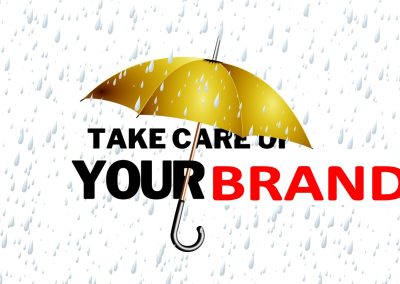Remaining low profile used to be imperative for companies when approaching politics or controversial topics. But the world has changed, and corporate activism is pointed out as the evolution of Corporate Social Responsibility
Lots of companies tell about environmental and social commitment, their humanitarian or patronage initiatives. When statements are followed (better if anticipated) by facts, this sort of programs feeds corporate communication and contributes to build a strong reputation over time. It was more difficults – at least up to recent years – to find corporations ready to speak up for civil rights, or support societal causes. Engaged brands preferred to stay behind the curtain, remaining neutral to avoid alienating touchy customers or shareholders. Communication was transparent in a few occurrences, for instance to influence public opinion and favour regulatory changes.
But that time seems to be over. Climate change, gender equality and LGBT rights, racism and immigrants swarmed into the political agenda and companies decided to break their silence against unfair or wrong decisions. It’s not altruism, of course. Corporate activism stems from a deeper understanding of the role businesses have in economy and society, and responsibilities they have towards customers and investors, and above all towards employees and the communities they are part of.
“I’m doing this really on behalf of my employees”, said Marc Benioff, CEO at Salesforce, when he started to fight LGBT discrimination in North Carolina and some other US states. Salesforce is among the 91% of Fortune 500 companies having policies against discrimination on the basis of sexual orientation.
“We’re a nation of immigrants whose diverse backgrounds, ideas, and points of view have helped us build and invent as a nation for over 240 years. […] It’s a distinctive competitive advantage for our country—one we should not weaken”, wrote Jeff Bezos to all Amazon employees, speaking out against President Trump’s immigration ban, restricting the opportunites for foreigners to live and work in the US.
Pressures for corporate activism are increasingly coming from consumers. According to a study by Global Strategy Group, 81% of Americans agrees that corporations should take more societal action, while 76% wants brands to stand up for what they believe politically. Companies cannot ignore this call, as their reputation is strongly based on their participation and contribution to public debate, as stressed by Reputation Institute.
Corporate activism impacts sales (authoritative research confirms customers tend to prefer brands and products sharing similar values and civil commitment), as well as talent recruitment, including managers and executives. When considering Gen Y and Z, we face people rating job opportunities upon compensation and benefits, but also caring deeply about employers’ integrity and ethics.
Thus, when speaking out around political, unions or religious issues, or highly polarised topics (such as vaccines), risks for businesses are high and should be carefully analysed. Ferrero was well aware of the sharp criticism that could arise in 2016, when decided to side sustainable palm oil. Nike was well prepared for the impact of the campaign featuring Colin Kaepernick, the NFL quarterback who first knelt during the national anthem to highlight racial injustice. A campaign that generated about USD 6 billion in sales and share price increases, but at first resulted in insults and highly negative comments.
If people – as consumers, employees or shareholders – appreciate corporate activism to put pressure on political and economic bodies, the decision of a company or a CEO to enter the fray should be evaluated from multiple perspectives. Do first consider the consistency of statements and behaviours (as for Corporate Social Responsibility‘s best practices), the congruence of corporate culture and history. But also have a back covered enough to resist the opposition that given positions naturally trigger. Handle with care, then.




